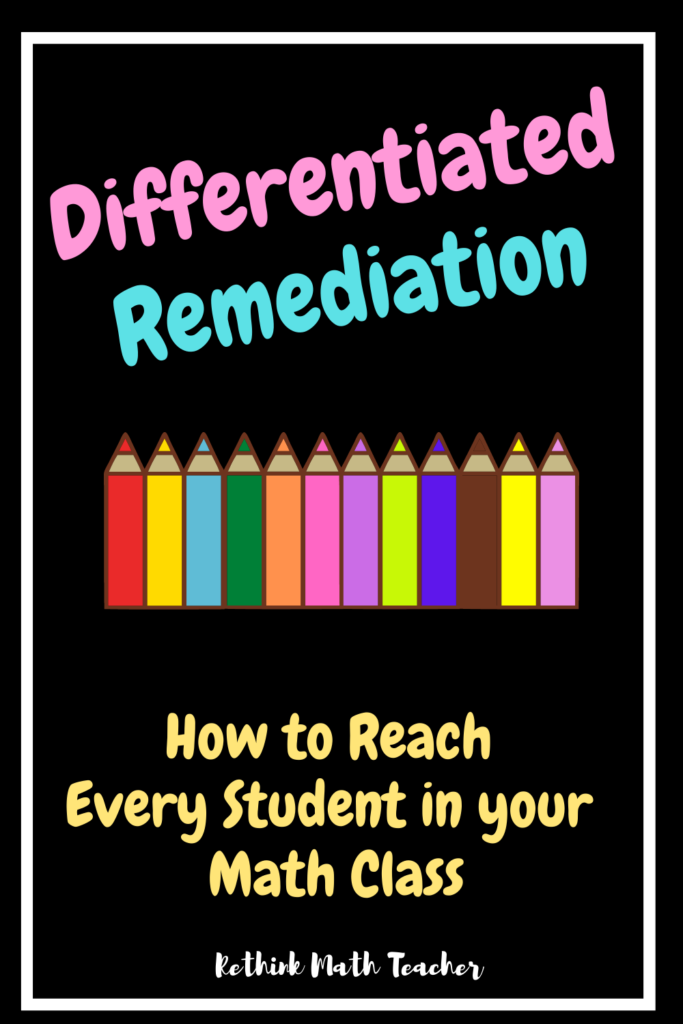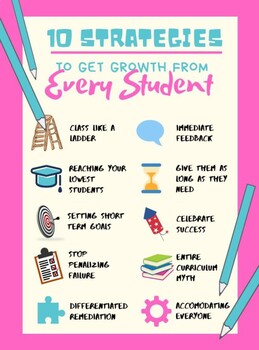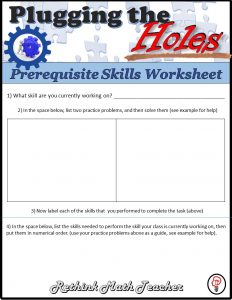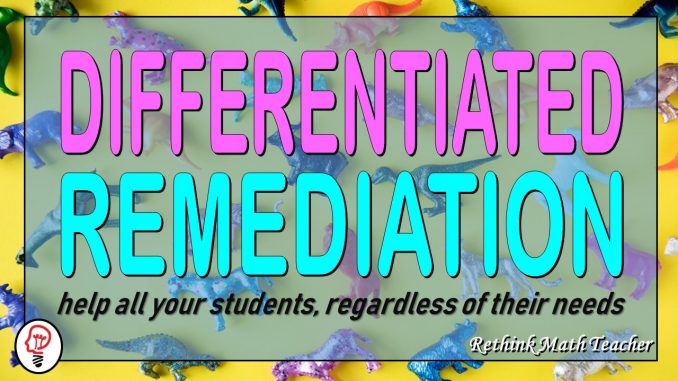
I modeled how to perform the task on the board and then gave a practice problem. As I circulated the room to help, most students were stuck and not attempting to solve the problem. They looked at me, “I don’t get it.” As I heard more students say this, I became more frustrated. “How can you not get it?!” I shouted at the class! “The steps are still on the board!”
I did number one from their worksheet on the board and began labeling the steps again. But this time, I was showing how to do the work with a bit of frustration in my tone. I then told everyone look at number two, and write the instructions for how to do the first step. Then I told them to do step one. I repeated this process for the several steps required to solve the problem and then ordered them to do the same for the following problems.
As I again circulated the room, I was exasperated to see that the results were the same. Lots of blank stares, students not trying, students who didn’t understand how to solve the problem.
Clearly, the problem wasn’t me… I had explained it perfectly! The problem was obviously with them.
The best explanations in the world will not help a student do something he doesn’t have the ability to do.
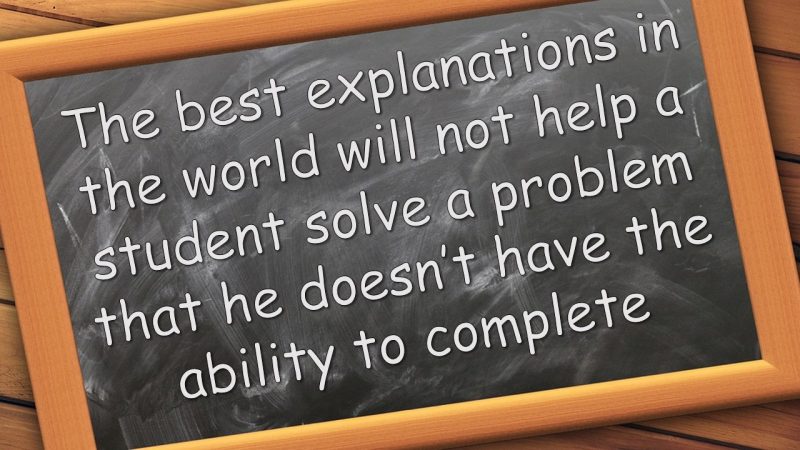
What I didn’t understand that day was that there was a reason that most of the class couldn’t complete the work that we were doing in class. It wasn’t that they were dumb, or quitters. And it wasn’t that I had not explained how to solve the problem well.
The issue was that they were not capable of doing the work we were doing in class that day because they had not mastered the prerequisite skills needed to complete the standard we were working on.

EXAMPLES
This truth is applicable to many math standards, but I will explain with the one that I was teaching to my eighth-grade students that day. How to divide two terms that are both in scientific notation. 8.EE.1.4

This is a very difficult skill. Think of all that students must be able to do to complete that task.
- They must understand terms in scientific notation
- They must know how to add and subtract integers
- They know how to divide numbers with decimals without a calculator
- They must know the exponent rules
How many students in the average eighth-grade class are capable of doing all four of these skills?
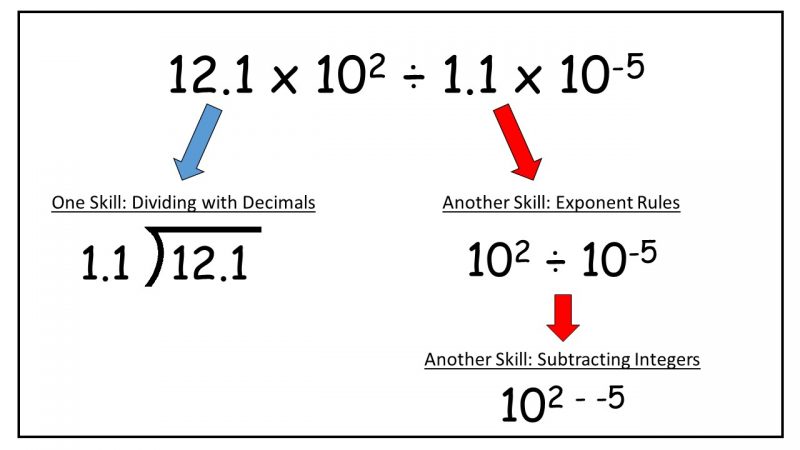
Sadly, not many. Even in an average class where half of the students are considered ‘on grade-level’ according to the end of year diagnostic, very few will be able to do all four tasks.
If I am going to help my students master the skill of dividing terms in scientific notation, I must remediate all of these prerequisite skills.
It’s True in Your Class Too
The same is true for most math concepts in most grades.
For example
- Students can’t multiply double digit numbers if they can’t add and don’t know their times tables
- Students can’t do long division if they don’t know their times tables, how to subtract, how to multiply numbers with two or three digits and a basic understanding of place values
- Students can’t add fractions if they can’t find the common denominator, which means they have to also know their times tables. They must also be able to add numbers as well as simplify fractions
- Students can’t do one-step equations if they can’t add integers, subtract integers, and multiply and divide them
- The list goes on…
There are many examples in all grades. But hopefully, the point has been made. Math builds upon itself, and if students are lacking some of the building blocks, they can’t do the grade level work.
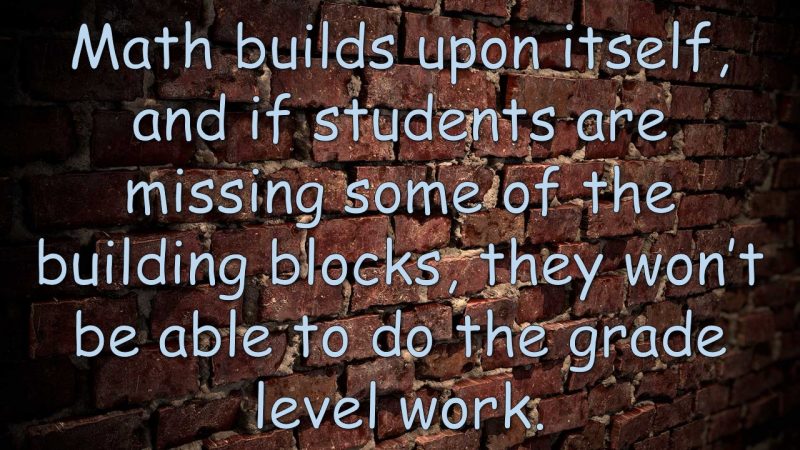
But many of the students need different help
Think about the dividing two terms in scientific notation problem above. We mentioned that there are four different skills that the student must identify and do correctly to solve the one problem. We also said that to serve the students who couldn’t do the grade level work, we needed to remediate them.
But not all of the students will need the same remediation!
Some students will know how to add integers and some won’t. Some might be able to add integers, but they can’t subtract them. And other students won’t be able to do either. And some can do both, but they don’t know the exponent rules….
You see the dilemma.
Not only that, some students need more practice than others. Some might just need a quick refresher on one of these skills, while others might need a LOT of practice and time to finally master it.
How can you accommodate all of the students, with all of their different needs? How can you remediate each student on the skill or skills he/she needs, without forcing all of the class to remediate on all of the skills?
The answer lies in differentiated remediation.
Sidebar, I just kinda threw that term out there. I mean… it makes sense to me. But if anyone else has already coined this term, I apologize.
What is Differentiated Remediation?
Again, I don’t know if this is already “a thing,” or a part of common vernacular that I have missed out on.
But what I am referring to is differentiating your remediation so that you remediate each student only on the skill(s) that they need to be remediated. And if they don’t need remediation, you accelerate them!
So everyone is only getting remediated on the skills that they need remediation work, and they’re getting as much of it as they need for as long as they need it.
In the example above, we have four different skills that we are remediating. So you would create a learning station for each skill, and then put the students in the learning station of the skill that they need remediation on. And you keep them in that skill until they master it!
Then you progress them to the next skill and repeat the same process.
Does it work?
Differentiated Remediation has been very successful for me. By scaffolding the learning stations, it gave me an easy way to celebrate students success. And allowing students as long as they needed to master a skill has helped me not penalize them for failure. But focussing on the remediation element has allowed me to have phenomenal growth with my students. Their learning gains every year have been close to 100%.
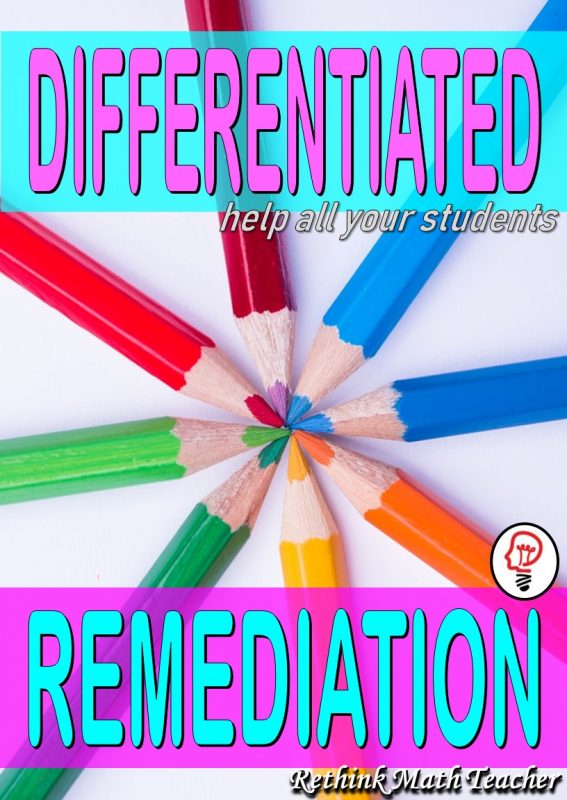
If you found this helpful, share it with your friends
How To Get Started?
I would invite you to download my free teacher worksheet to help you map out the skills that are involved in the skill that you are currently teaching to your class. Watch the video below to see how to fill it out.
Watch the video to see how to fill out the form
What’s Next?
If you’re interested in helping your students master math by differentiating your remediation, then I have three resources for you:
1) Take the Uncommon Teacher Challenge
I’d like to send you 10 free teaching resources to help you become an Uncommon Teacher. Do things different than most teachers and get uncommon results. The Uncommon Teacher Challenge includes 10 articles, with 10 resources, and 10 different strategies to help you reach all your students.
Enroll in the Uncommon Teacher Challenge

2) Reach Them All
Reach Them All is a book that will walk you through a step by step process of how to create and implement learning stations in your class that will help you differentiate your remediation so that you can effectively impact every student in the room by meeting them where they are and helping them grow through skills based learning stations.
Learn more about Reach Them All here.
3) The Online Course
We are now offering a 3 Part Online Course that will walk you through the process of creating learning stations that will target students’ weaknesses, build them up, until the student is proficient at grade level skills.
There learning stations will give a reteach, lots of practice with immediate feedback, and not punish students for making mistakes.
Learn more about the online course here.
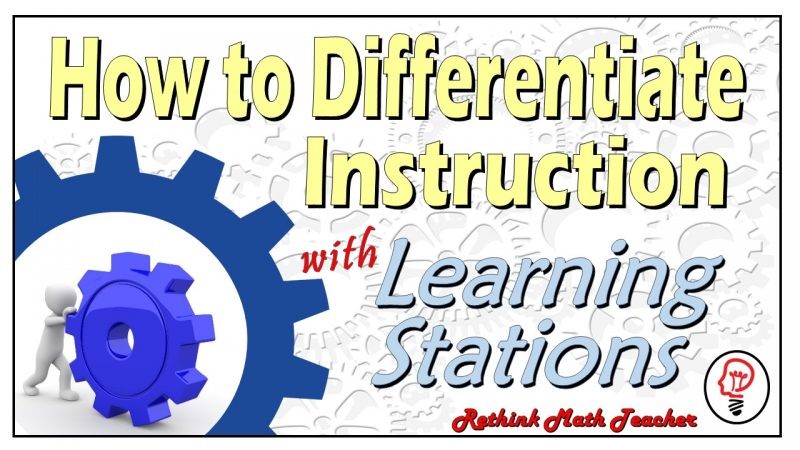
What to Read Next
- Give Students as Long as They Need
- Putting it All Together
- The Entire Curriculum Myth
- 21 Days to Be a Better Math Teacher
- Celebrate Your Students’ Success
